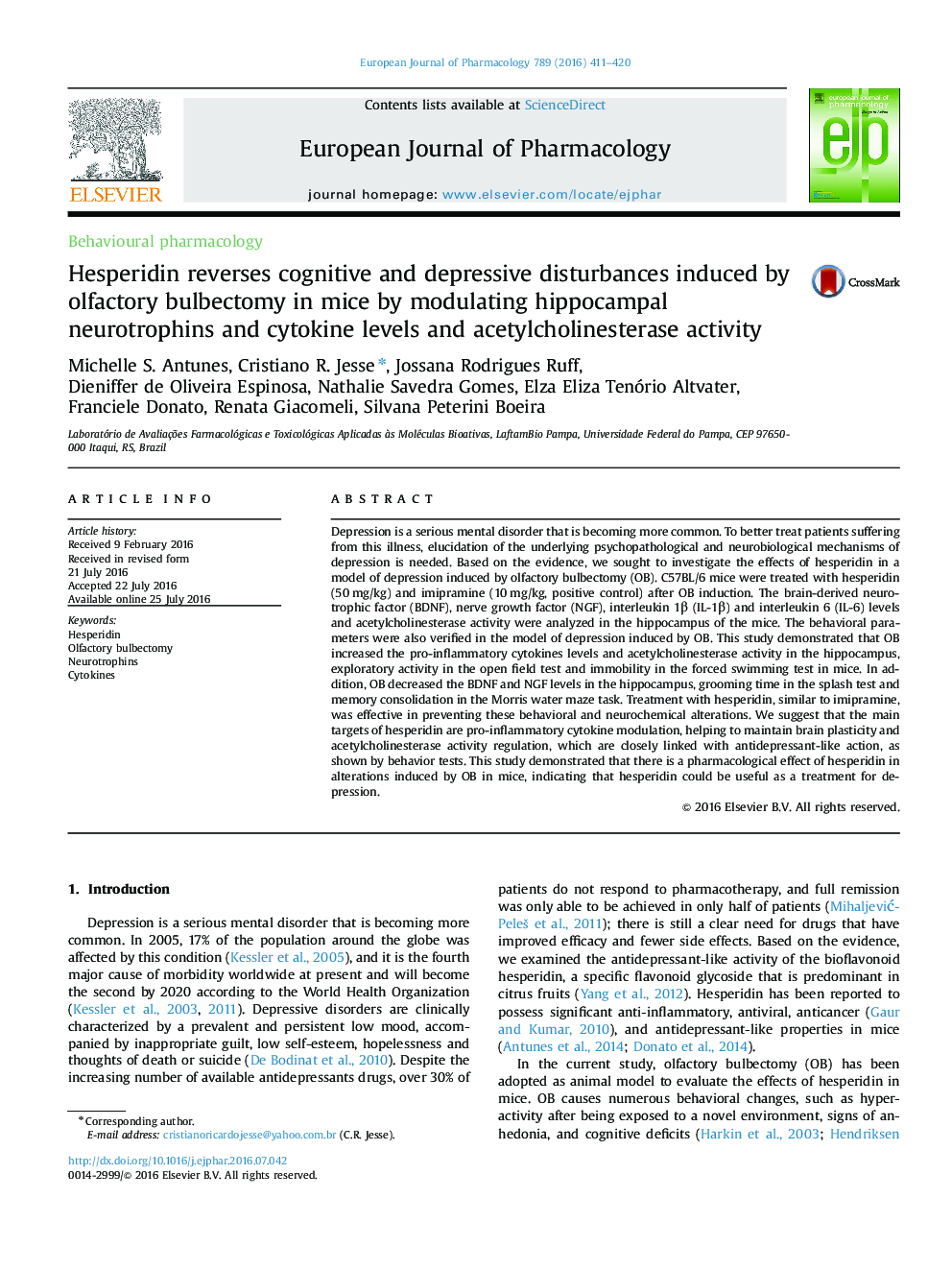| کد مقاله | کد نشریه | سال انتشار | مقاله انگلیسی | نسخه تمام متن |
|---|---|---|---|---|
| 2530830 | 1558891 | 2016 | 10 صفحه PDF | دانلود رایگان |
Depression is a serious mental disorder that is becoming more common. To better treat patients suffering from this illness, elucidation of the underlying psychopathological and neurobiological mechanisms of depression is needed. Based on the evidence, we sought to investigate the effects of hesperidin in a model of depression induced by olfactory bulbectomy (OB). C57BL/6 mice were treated with hesperidin (50 mg/kg) and imipramine (10 mg/kg, positive control) after OB induction. The brain-derived neurotrophic factor (BDNF), nerve growth factor (NGF), interleukin 1β (IL-1β) and interleukin 6 (IL-6) levels and acetylcholinesterase activity were analyzed in the hippocampus of the mice. The behavioral parameters were also verified in the model of depression induced by OB. This study demonstrated that OB increased the pro-inflammatory cytokines levels and acetylcholinesterase activity in the hippocampus, exploratory activity in the open field test and immobility in the forced swimming test in mice. In addition, OB decreased the BDNF and NGF levels in the hippocampus, grooming time in the splash test and memory consolidation in the Morris water maze task. Treatment with hesperidin, similar to imipramine, was effective in preventing these behavioral and neurochemical alterations. We suggest that the main targets of hesperidin are pro-inflammatory cytokine modulation, helping to maintain brain plasticity and acetylcholinesterase activity regulation, which are closely linked with antidepressant-like action, as shown by behavior tests. This study demonstrated that there is a pharmacological effect of hesperidin in alterations induced by OB in mice, indicating that hesperidin could be useful as a treatment for depression.
Figure optionsDownload high-quality image (144 K)Download as PowerPoint slide
Journal: European Journal of Pharmacology - Volume 789, 15 October 2016, Pages 411–420
